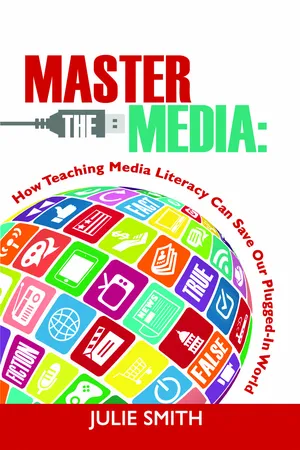
- English
- ePUB (mobile friendly)
- Available on iOS & Android
eBook - ePub
Frequently asked questions
Yes, you can cancel anytime from the Subscription tab in your account settings on the Perlego website. Your subscription will stay active until the end of your current billing period. Learn how to cancel your subscription.
No, books cannot be downloaded as external files, such as PDFs, for use outside of Perlego. However, you can download books within the Perlego app for offline reading on mobile or tablet. Learn more here.
Perlego offers two plans: Essential and Complete
- Essential is ideal for learners and professionals who enjoy exploring a wide range of subjects. Access the Essential Library with 800,000+ trusted titles and best-sellers across business, personal growth, and the humanities. Includes unlimited reading time and Standard Read Aloud voice.
- Complete: Perfect for advanced learners and researchers needing full, unrestricted access. Unlock 1.4M+ books across hundreds of subjects, including academic and specialized titles. The Complete Plan also includes advanced features like Premium Read Aloud and Research Assistant.
We are an online textbook subscription service, where you can get access to an entire online library for less than the price of a single book per month. With over 1 million books across 1000+ topics, we’ve got you covered! Learn more here.
Look out for the read-aloud symbol on your next book to see if you can listen to it. The read-aloud tool reads text aloud for you, highlighting the text as it is being read. You can pause it, speed it up and slow it down. Learn more here.
Yes! You can use the Perlego app on both iOS or Android devices to read anytime, anywhere — even offline. Perfect for commutes or when you’re on the go.
Please note we cannot support devices running on iOS 13 and Android 7 or earlier. Learn more about using the app.
Please note we cannot support devices running on iOS 13 and Android 7 or earlier. Learn more about using the app.
Yes, you can access Master the Media by in PDF and/or ePUB format, as well as other popular books in Education & Education Theory & Practice. We have over one million books available in our catalogue for you to explore.
Information
Topic
EducationSubtopic
Education Theory & Practice
Chapter 1
LET’S DO THIS
FACTS TO REMEMBER:
- Media outlets are owned by profit-seeking corporations.
- They create and perpetuate our culture.
- The time we spend with media keeps increasing.
- Media literacy is NOT media bashing.
Studies predict that, by 2015, the average American will consume more than fifteen hours of media each day, in addition to the media they view at work time.1 If you’re thinking the math doesn’t add up, you’re right. Fifteen hours sounds impossible. But media researchers are savvy to the fact that we often use more than one medium at a time. For example, you might be reading this book in front of the television or while listening to music. That would count as double media usage. If only our sleep could be as productive!
Media themselves are neither good nor bad; they’re simply tools that deliver content. But because we spend so much time with media, they deserve to be studied, analyzed, and scrutinized. It’s important to understand how the content and the rate at which we consume it impact our lives. How does media usage affect us? How is it affecting students?
Researchers insist that too much media consumption can lead to obesity, lower school achievement, aggression, and even rudeness. Fifteen hours of daily consumption most surely makes an impact. Scholars in Canada began studying the effect of media consumption forty years ago. Their interest in the effects of media had a nationalism angle. The study determined that, because so many Canadians receive American media and pop culture, it is important for them to consume media critically to maintain their unique national identity.2,3
The term “media literacy” has been around for years, with various definitions. Most of the definitions include the words analyze, critique, and evaluate. And with schools emphasizing critical thinking, who could argue with those verbs?
Sometimes media literacy is described as “trying to teach the fish that water exists.” How do you make kids aware of the role the media play in their lives? They constantly swim in this water of media messages where they are learning about relationships, marriage, love, sex, divorce, friendship, health, identity, and consumerism. They are learning what it means to be handsome, beautiful, and successful, and they are learning about products that will fix their implied inadequacies.
By engaging in this online world, they learn about education, politics, wars, riots, protests, and debates. And they see victories, celebrations, sportsmanship, talent, and citizenship. They see inspiring heroes, athletes, and characters. Media expose them to people, countries, and situations that they might never experience in person. So to claim that the media are harmful is a gross overgeneralization. Yet, to claim media should not be analyzed is a naïve mistake.
Even though many media productions are created specifically to entertain, they educate as well — but not always accurately. Thousands of studies have reviewed the relationship between media consumption and our perceptions of “reality.” You’ve likely witnessed this break with reality firsthand: the student who thinks everyone in Africa lives in a hut or the friend who shares an obviously doctored photo on social media. We are reared and educated in a mediated world.
A wide range of issues pervades our mass media. But we cannot change the messages of the media because their creators enjoy First Amendment protection. Therefore, the obvious way to avoid any potentially negative consequences of the “big bad media” is to become media literate. And as teachers, we must educate the receivers of the messages.
When I tell people I teach media literacy, many assume I am anti-media. That couldn’t be further from the truth! A food critic doesn’t hate food. In fact, a food critic has a great love for and fascination with food. He examines how it is produced and presented. He evaluates the taste, color, smell, and texture of the food. A food critic appreciates a wonderful meal for all of those reasons. But he also notices deficiencies in the dish that others might miss. Similarly, my teaching media literacy doesn’t mean I hate the media. It means I analyze their production, presentation, effect, and yes — their “taste.”
The purpose of media literacy education is to help individuals of all ages develop the necessary habits of inquiry and skills of expression to be critical thinkers, effective communicators, and active citizens in today’s world. The National Association for Media Literacy Education (NAMLE) lists the following core principles that should be familiar to anyone instructing others in media literacy:
- Media Literacy Education requires active inquiry and critical thinking about the messages we receive and create.
- It expands the concept of literacy to include all forms of media (i.e., reading and writing).
- Media Literacy Education builds and reinforces skills for learners of all ages. Like print literacy, those skills necessitate integrated, interactive, and repeated practice.
- It develops informed, reflective, and engaged participants essential for a democratic society.
- Media Literacy Education recognizes that media are a part of culture and function as agents of socialization.
- It affirms that people use their individual skills, beliefs, and experiences to construct their own meanings from media messages.4
The importance of being media literate is hard to debate. In fact, media literacy courses are required in countries such as Great Britain, Canada, Australia, and Spain. However, media literacy has had a tough road in the United States. Although many agree on its importance, there is no consensus on where or when it should be taught. School schedules are already full; can we really ask teachers to do one more thing?
Using media literacy in the classroom goes beyond a teacher showing a YouTube clip or using iPads. The next generation needs to have some context for the media they consume. As educators and parents, we can impress upon them the value of asking:
- What’s the history?
- Who’s creating these messages?
- Who makes money from these messages?
- How are they involved in the process?
- What is the point of viewing the message?
The road to media literacy can begin anywhere — not just in the library. Simple questions can help children not only become aware of the media’s presence but its influence as well.
I hope this book will make it easier for you to help the children in your life become critical consumers of the media. Being media literate is a twenty-first-century survival skill. Our children need it not only to navigate the world in which they currently live but also the mediated world of the future.
While Master the Media isn’t comprehensive, it provides a good starting point for anyone interested in helping others become critical consumers in today’s always-on culture. I’ve segmented the content based on media format. Questions at the end of each chapter will help you introduce media literacy in your home or classroom. Media literacy might not save the world, but it sure can improve the world by helping us see how we consume information, perceive others, learn, view the world, and even vote. Let’s get started.
Why Promote Media Literacy?
“For me, as a consumer of media, as well as an educator, media literacy education involves taking back our inherent rights of freedom of thought from the outlets that attempt to monitor, persuade, and condition our minds.” — Tim Kohler, high school English teacher and former student
Media Literacy at Home:
- Are you an active or passive media consumer? What difference does it make?
- In what ways do the media influence your life or your family?
- Are there media productions that you and your family enjoy together?
Media Literacy in the Classroom:
- How do students define media?
- Are students aware of how much media they consume? Could they chart it?
- In what ways do your students feel that the media affect them?
Additional Resources
PDF: Why Media Literacy Is Important
What is Media Literacy?
TED Talk: Creating Critical Thinkers thru Media Literacy

Chapter 2
TELEVISION
FACTS TO REMEMBER:
- Everything on television is constructed to keep us watching.
- Heavy viewing of television can distort one’s view of the world.
- Television’s function is to deliver viewers to specific advertisers.
- Most channels are owned by a small number of huge media corporations.
Decades have passed since FCC Chairman Newton Minow declared television a “vast wasteland.” At that time, television didn’t have much competition for entertainment within the home. My students smirk when they learn I grew up watching only three channels — ABC, CBS, and NBC. Their television experience...
Table of contents
- Why I Wrote this Book
- Chapter 1 LET’S DO THIS
- Chapter 2 TELEVISION
- Chapter 3 MUSIC AND THE RADIO
- Chapter 4 FILM
- Chapter 5 NEWS
- Chapter 6 BOOKS AND MAGAZINES
- Chapter 7 ADVERTISING
- Chapter 8 THE INTERNET
- Chapter 9 POLITICAL MEDIA
- Chapter 10 The Perfect Storm: Sex, Violence, and Money
- Closing Thoughts
- Media Literacy Websites Worth Checking Out
- Further Reading
- More from Dave Burgess Consulting, Inc
- About the Author